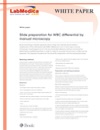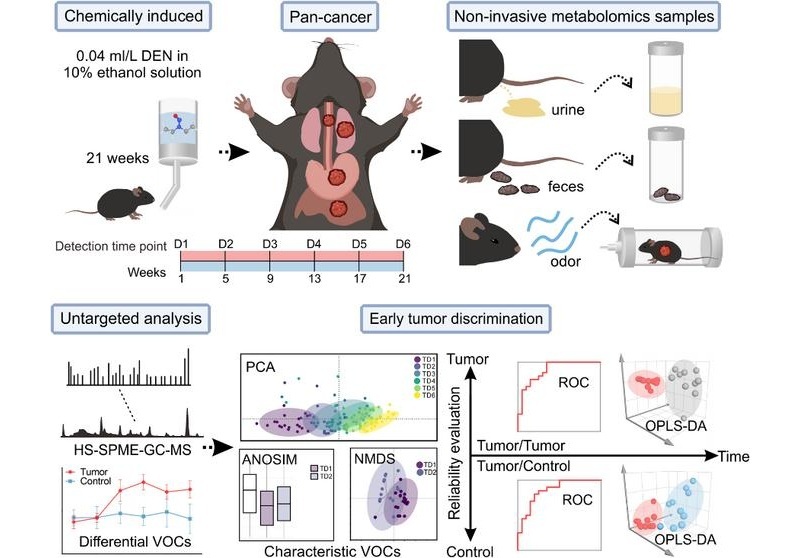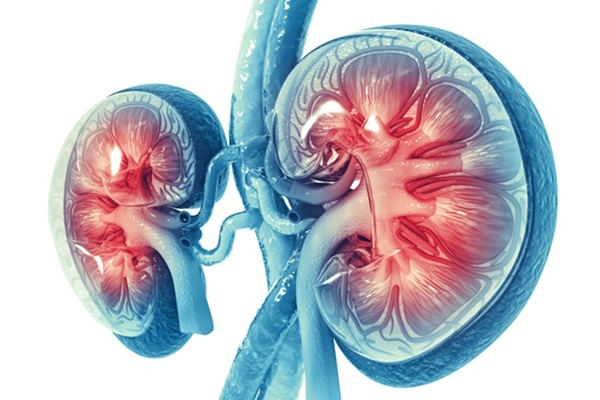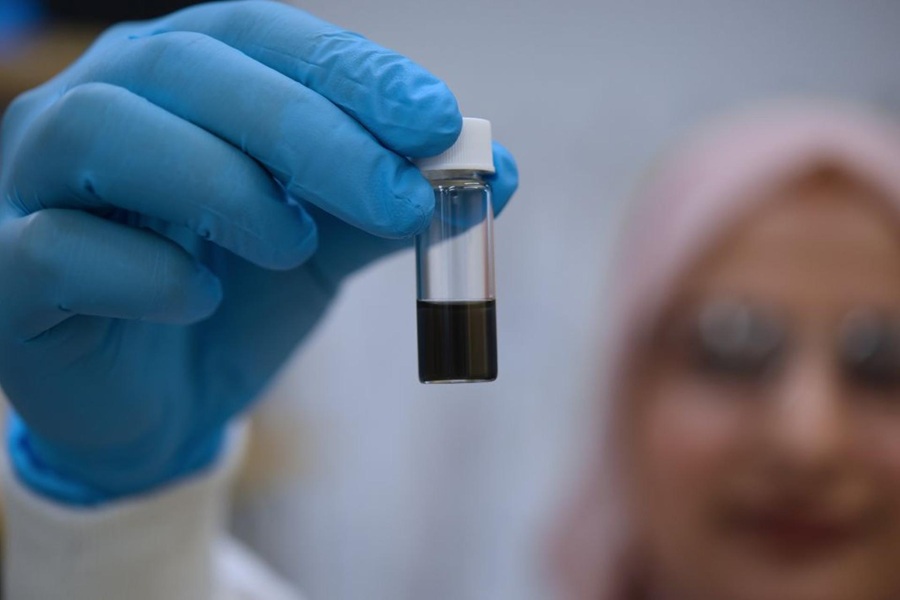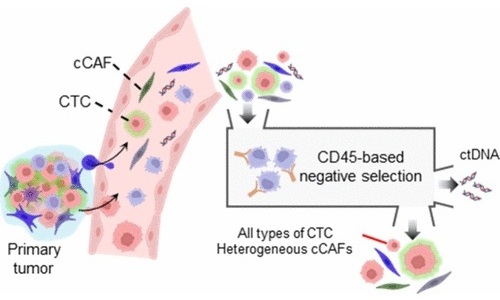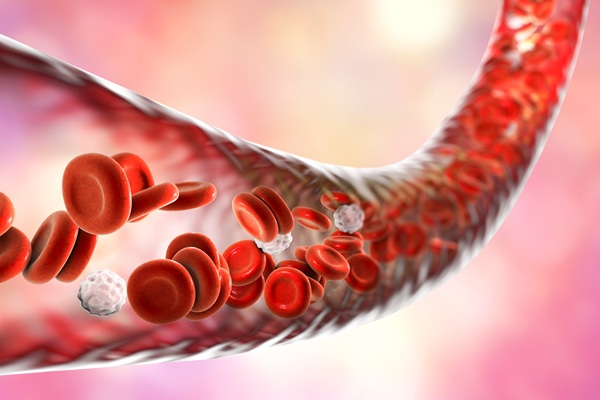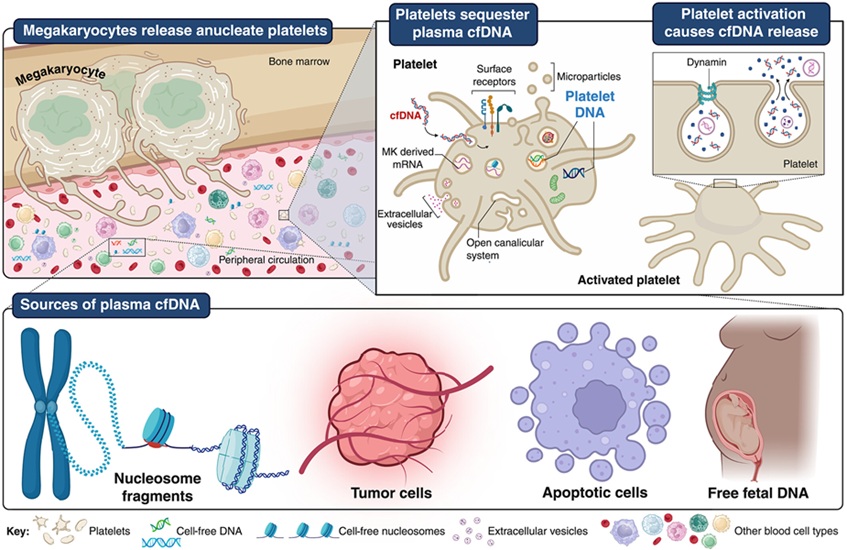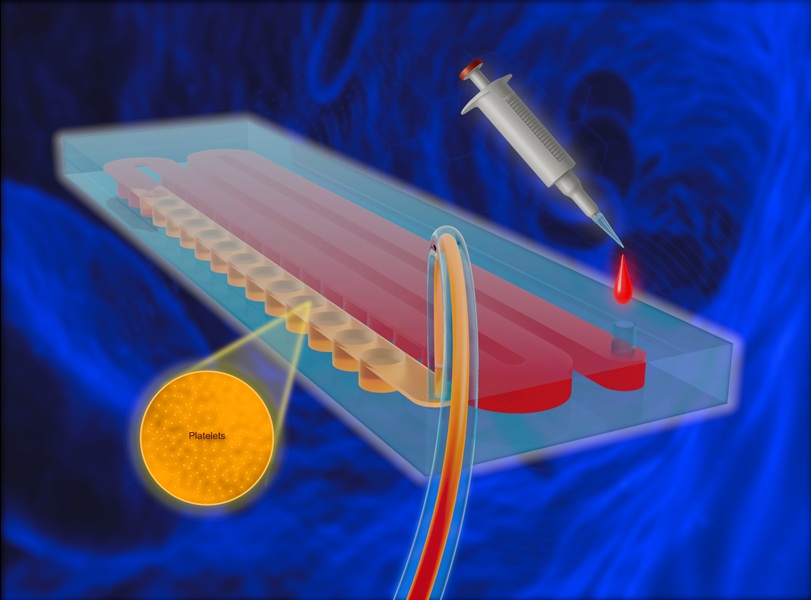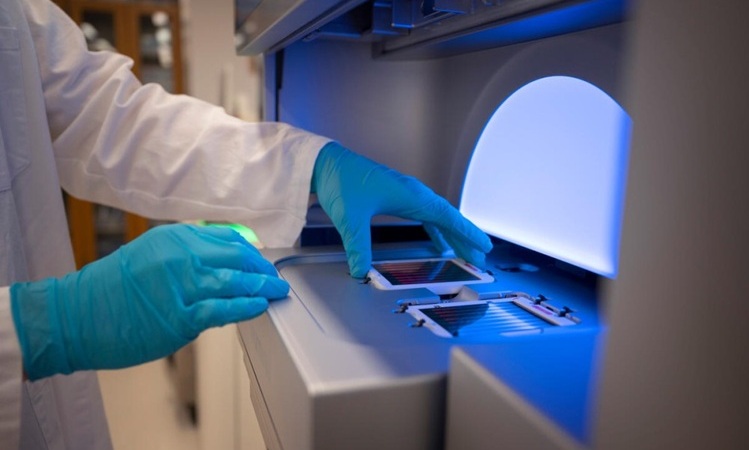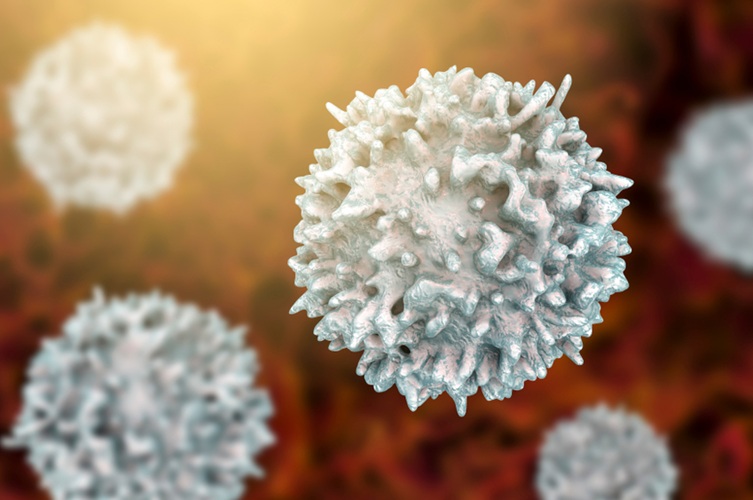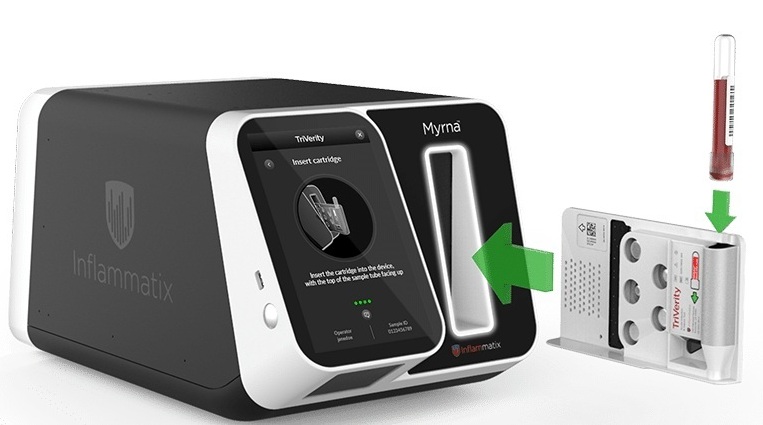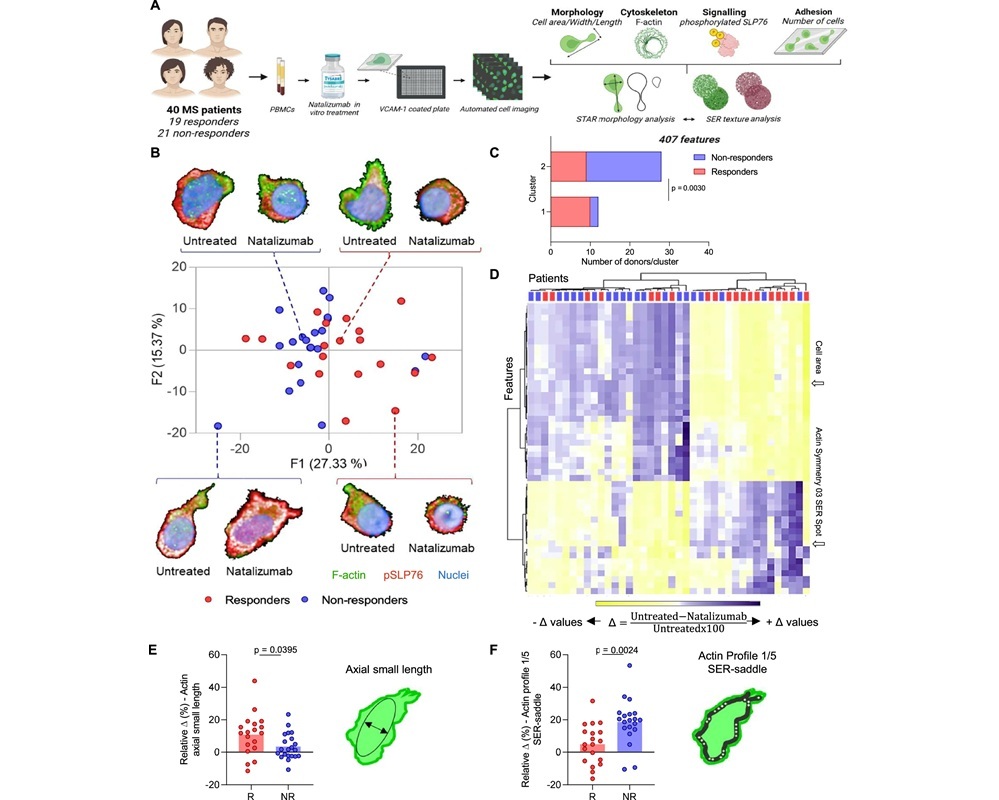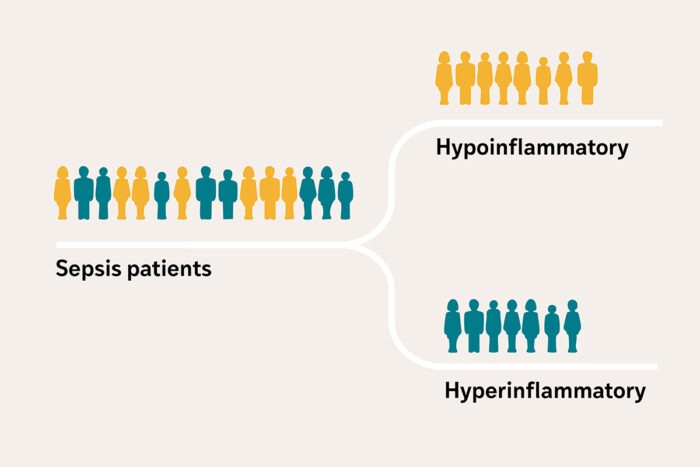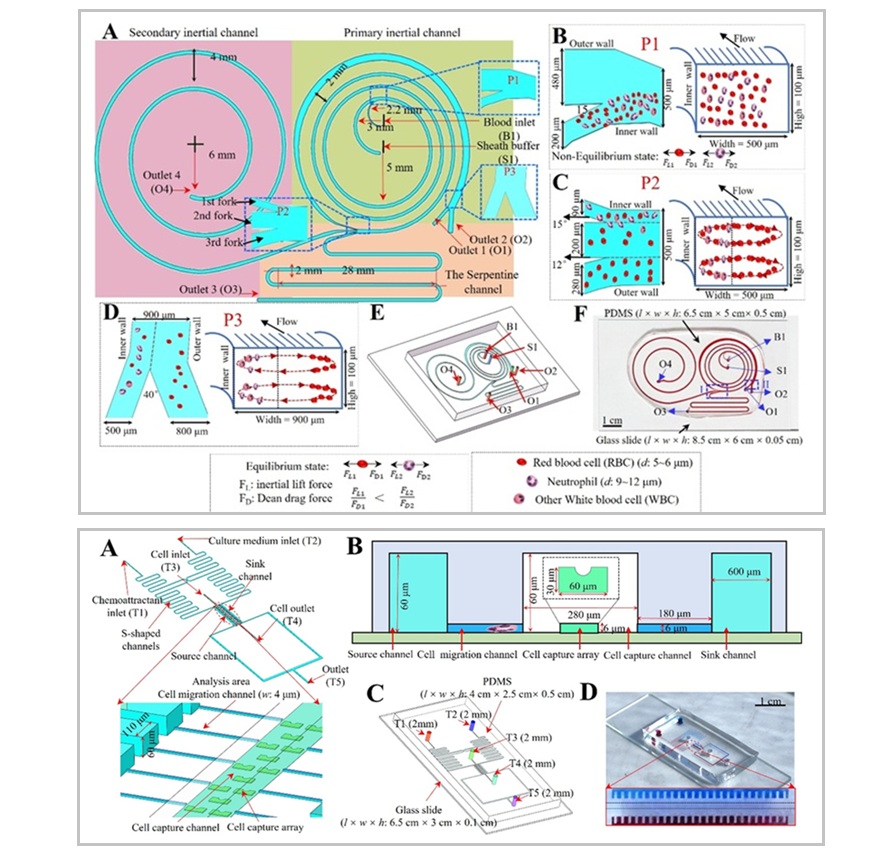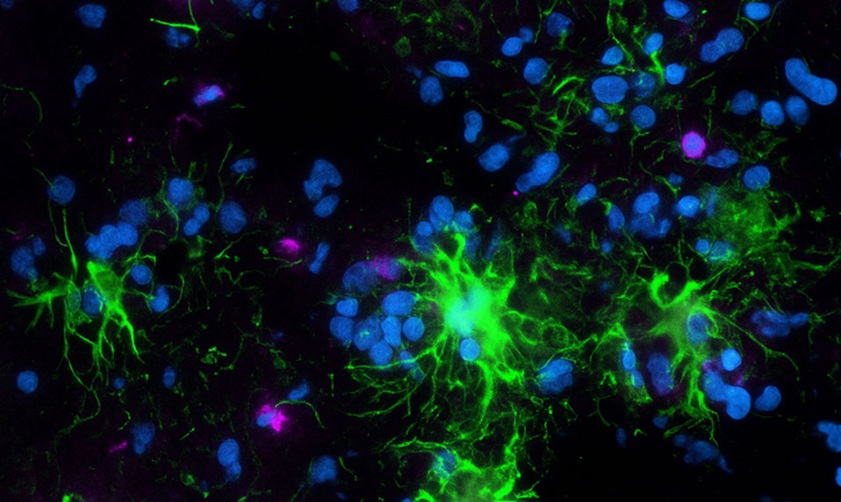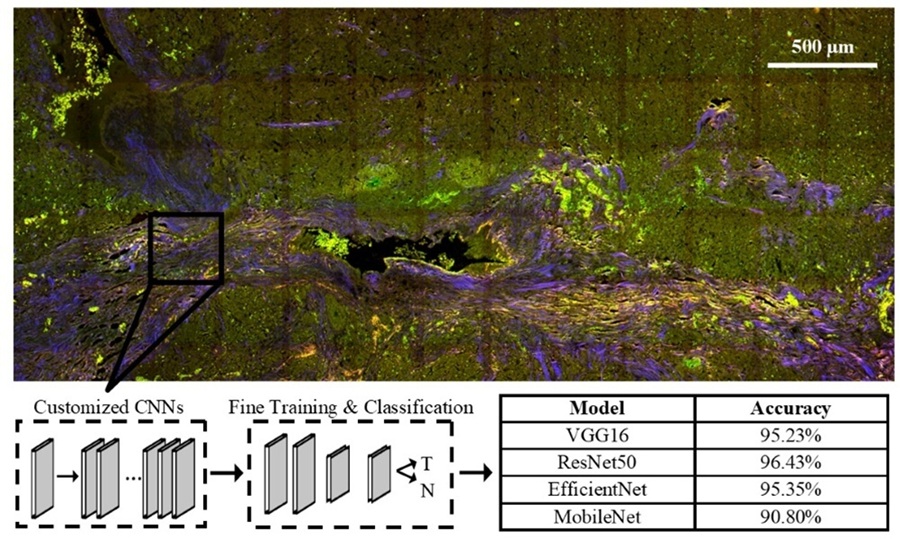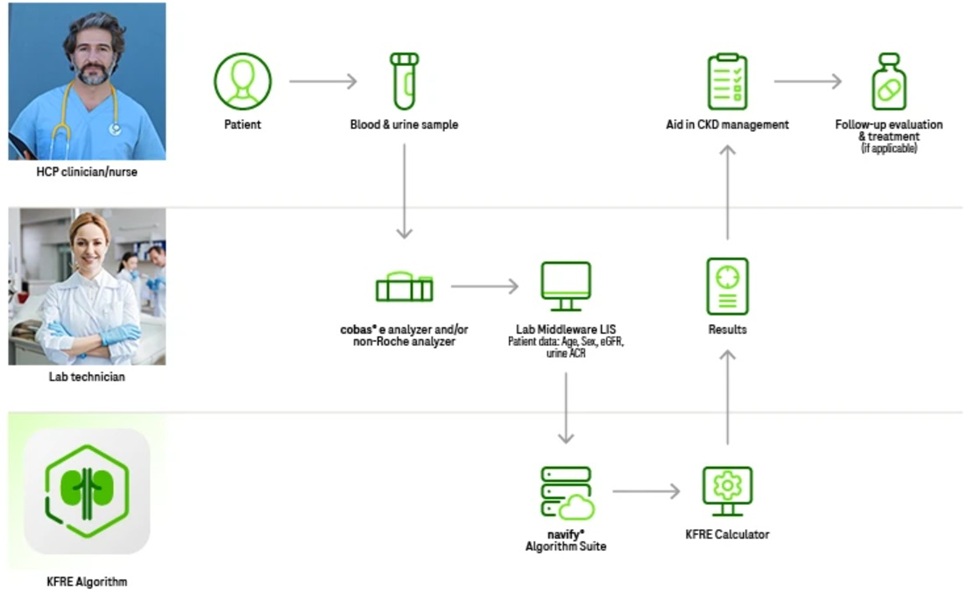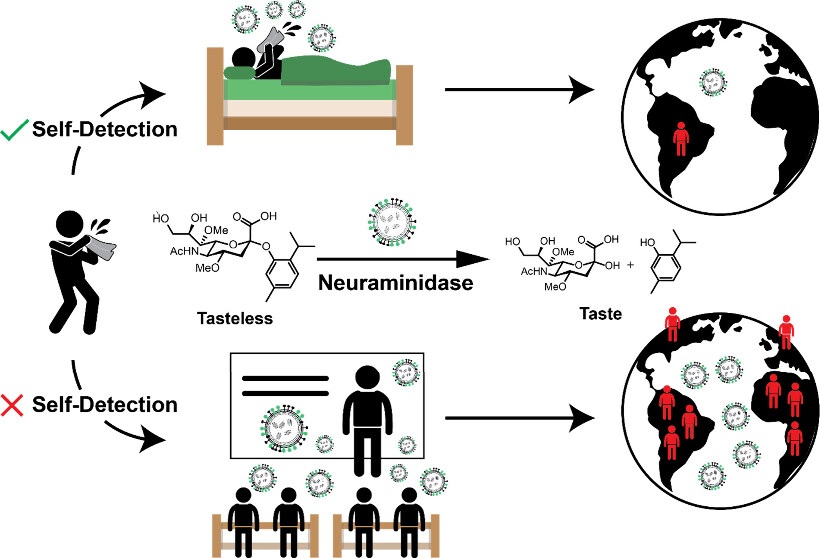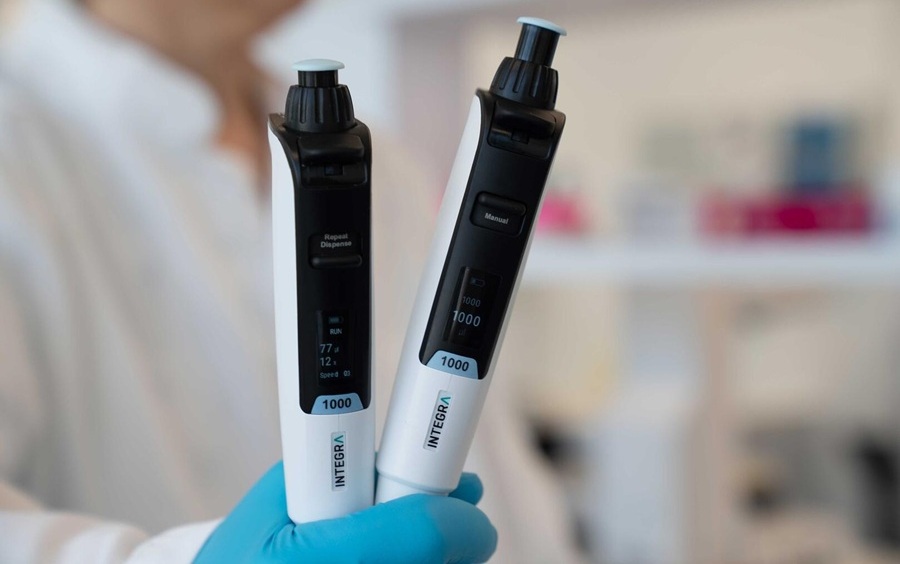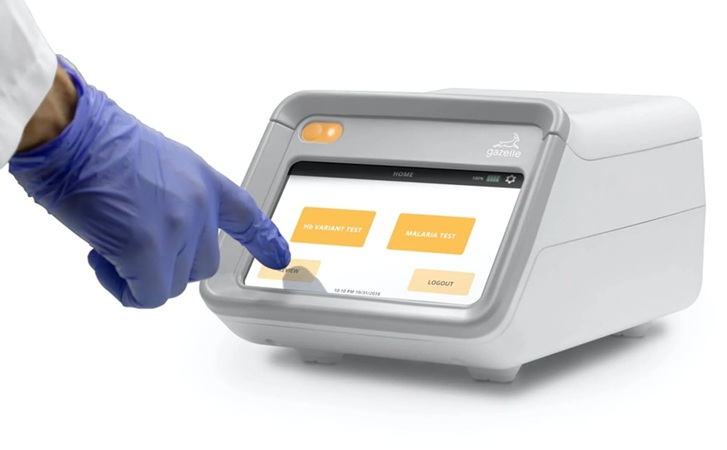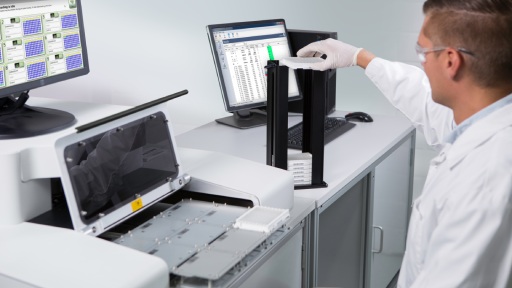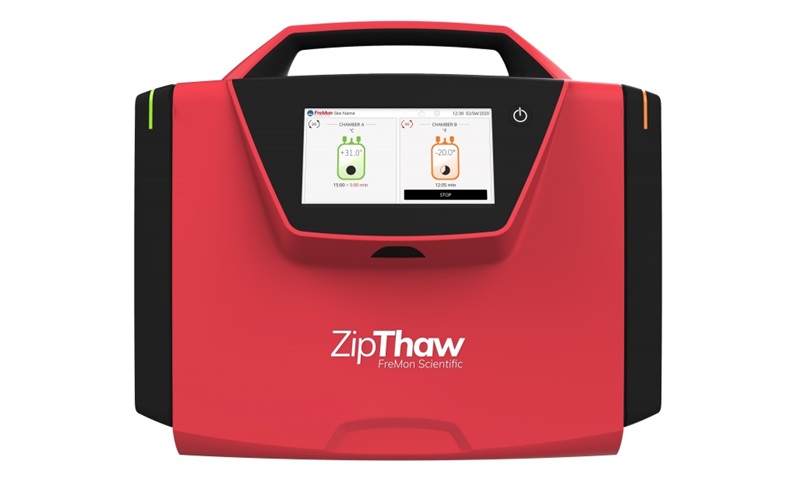Expo
view channel
view channel
view channel
view channel
view channel
view channel
view channel
view channel
Clinical Chem.
HematologyImmunologyMicrobiologyPathologyTechnologyIndustry
Events
Webinars

- Portable Raman Spectroscopy Offers Cost-Effective Kidney Disease Diagnosis at POC
- Gold Nanoparticles to Improve Accuracy of Ovarian Cancer Diagnosis
- Simultaneous Cell Isolation Technology Improves Cancer Diagnostic Accuracy
- Simple Non-Invasive Hair-Based Test Could Speed ALS Diagnosis
- Paper Strip Saliva Test Detects Elevated Uric Acid Levels Without Blood Draws
- Pioneering Model Measures Radiation Exposure in Blood for Precise Cancer Treatments
- Platelets Could Improve Early and Minimally Invasive Detection of Cancer
- Portable and Disposable Device Obtains Platelet-Rich Plasma Without Complex Equipment
- Disposable Cartridge-Based Test Delivers Rapid and Accurate CBC Results
- First Point-of-Care Heparin Monitoring Test Provides Results in Under 15 Minutes
- Luminescent Probe Measures Immune Cell Activity in Real Time
- Blood-Based Immune Cell Signatures Could Guide Treatment Decisions for Critically Ill Patients
- Novel Tool Predicts Most Effective Multiple Sclerosis Medication for Patients
- Companion Diagnostic Test for CRC Patients Identifies Eligible Treatment Population
- Novel Tool Uses Deep Learning for Precision Cancer Therapy
- Rapid Sepsis Diagnostic Device to Enable Personalized Critical Care for ICU Patients
- Microfluidic Platform Assesses Neutrophil Function in Sepsis Patients
- New Diagnostic Method Confirms Sepsis Infections Earlier
- New Markers Could Predict Risk of Severe Chlamydia Infection
- Portable Spectroscopy Rapidly and Noninvasively Detects Bacterial Species in Vaginal Fluid
- Taste-Based Influenza Test Could Replace Nasal Swabs with Chewing Gum
- 3D Micro-Printed Sensors to Advance On-Chip Biosensing for Early Disease Detection
- Hybrid Pipette Combines Manual Control with Fast Electronic Aliquoting
- Coral-Inspired Capsule Samples Hidden Bacteria from Small Intestine
- Rapid Diagnostic Technology Utilizes Breath Samples to Detect Lower Respiratory Tract Infections
- Revvity and Sanofi Collaborate on Program to Revolutionize Early Detection of Type 1 Diabetes
- GSI Group Acquires Blood Processing Equipment Manufacturer GenesisBPS
- ELITech and Hitachi High-Tech to Develop Automated PCR Testing System for Infectious Diseases
- Lumiquick Acquires Aoxre to Expand Global IVD and Research Capabilities
- Lunit and Agilent Partner to Develop AI-Powered Cancer Diagnostics
- Gene Panel Predicts Disease Progession for Patients with B-cell Lymphoma
- New Method Simplifies Preparation of Tumor Genomic DNA Libraries
- New Tool Developed for Diagnosis of Chronic HBV Infection
- Panel of Genetic Loci Accurately Predicts Risk of Developing Gout
- Disrupted TGFB Signaling Linked to Increased Cancer-Related Bacteria
- Serially Testing Brain Tumor Samples Reveals Treatment Response in Glioblastoma Patients
- High-Accuracy Tumor Detection Method Offers Real-Time Surgical Guidance
- AI Tool Detects Hidden Warning Signs of Disease Inside Single Cells
- Automated Tool Detects Early Warning Signs of Breast Cancer
- New Software Tool Improves Analysis of Complex Spatial Data from Tissues

 Expo
Expo
- Portable Raman Spectroscopy Offers Cost-Effective Kidney Disease Diagnosis at POC
- Gold Nanoparticles to Improve Accuracy of Ovarian Cancer Diagnosis
- Simultaneous Cell Isolation Technology Improves Cancer Diagnostic Accuracy
- Simple Non-Invasive Hair-Based Test Could Speed ALS Diagnosis
- Paper Strip Saliva Test Detects Elevated Uric Acid Levels Without Blood Draws
- Pioneering Model Measures Radiation Exposure in Blood for Precise Cancer Treatments
- Platelets Could Improve Early and Minimally Invasive Detection of Cancer
- Portable and Disposable Device Obtains Platelet-Rich Plasma Without Complex Equipment
- Disposable Cartridge-Based Test Delivers Rapid and Accurate CBC Results
- First Point-of-Care Heparin Monitoring Test Provides Results in Under 15 Minutes
- Luminescent Probe Measures Immune Cell Activity in Real Time
- Blood-Based Immune Cell Signatures Could Guide Treatment Decisions for Critically Ill Patients
- Novel Tool Predicts Most Effective Multiple Sclerosis Medication for Patients
- Companion Diagnostic Test for CRC Patients Identifies Eligible Treatment Population
- Novel Tool Uses Deep Learning for Precision Cancer Therapy
- Rapid Sepsis Diagnostic Device to Enable Personalized Critical Care for ICU Patients
- Microfluidic Platform Assesses Neutrophil Function in Sepsis Patients
- New Diagnostic Method Confirms Sepsis Infections Earlier
- New Markers Could Predict Risk of Severe Chlamydia Infection
- Portable Spectroscopy Rapidly and Noninvasively Detects Bacterial Species in Vaginal Fluid
- Taste-Based Influenza Test Could Replace Nasal Swabs with Chewing Gum
- 3D Micro-Printed Sensors to Advance On-Chip Biosensing for Early Disease Detection
- Hybrid Pipette Combines Manual Control with Fast Electronic Aliquoting
- Coral-Inspired Capsule Samples Hidden Bacteria from Small Intestine
- Rapid Diagnostic Technology Utilizes Breath Samples to Detect Lower Respiratory Tract Infections
- Revvity and Sanofi Collaborate on Program to Revolutionize Early Detection of Type 1 Diabetes
- GSI Group Acquires Blood Processing Equipment Manufacturer GenesisBPS
- ELITech and Hitachi High-Tech to Develop Automated PCR Testing System for Infectious Diseases
- Lumiquick Acquires Aoxre to Expand Global IVD and Research Capabilities
- Lunit and Agilent Partner to Develop AI-Powered Cancer Diagnostics
- Gene Panel Predicts Disease Progession for Patients with B-cell Lymphoma
- New Method Simplifies Preparation of Tumor Genomic DNA Libraries
- New Tool Developed for Diagnosis of Chronic HBV Infection
- Panel of Genetic Loci Accurately Predicts Risk of Developing Gout
- Disrupted TGFB Signaling Linked to Increased Cancer-Related Bacteria
- Serially Testing Brain Tumor Samples Reveals Treatment Response in Glioblastoma Patients
- High-Accuracy Tumor Detection Method Offers Real-Time Surgical Guidance
- AI Tool Detects Hidden Warning Signs of Disease Inside Single Cells
- Automated Tool Detects Early Warning Signs of Breast Cancer
- New Software Tool Improves Analysis of Complex Spatial Data from Tissues





